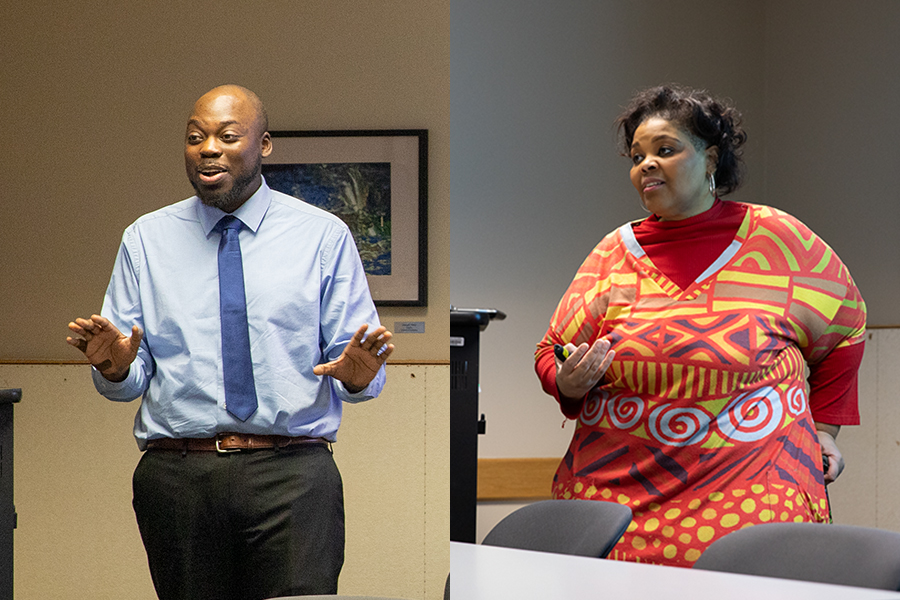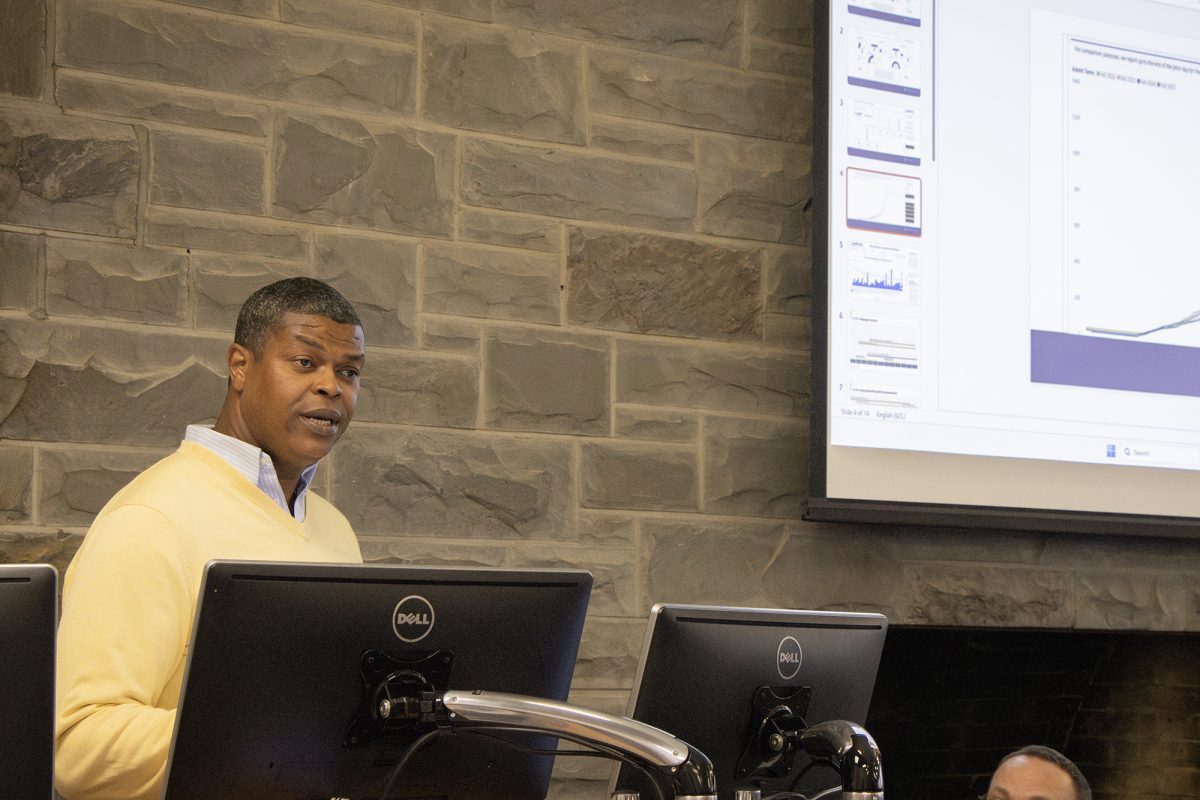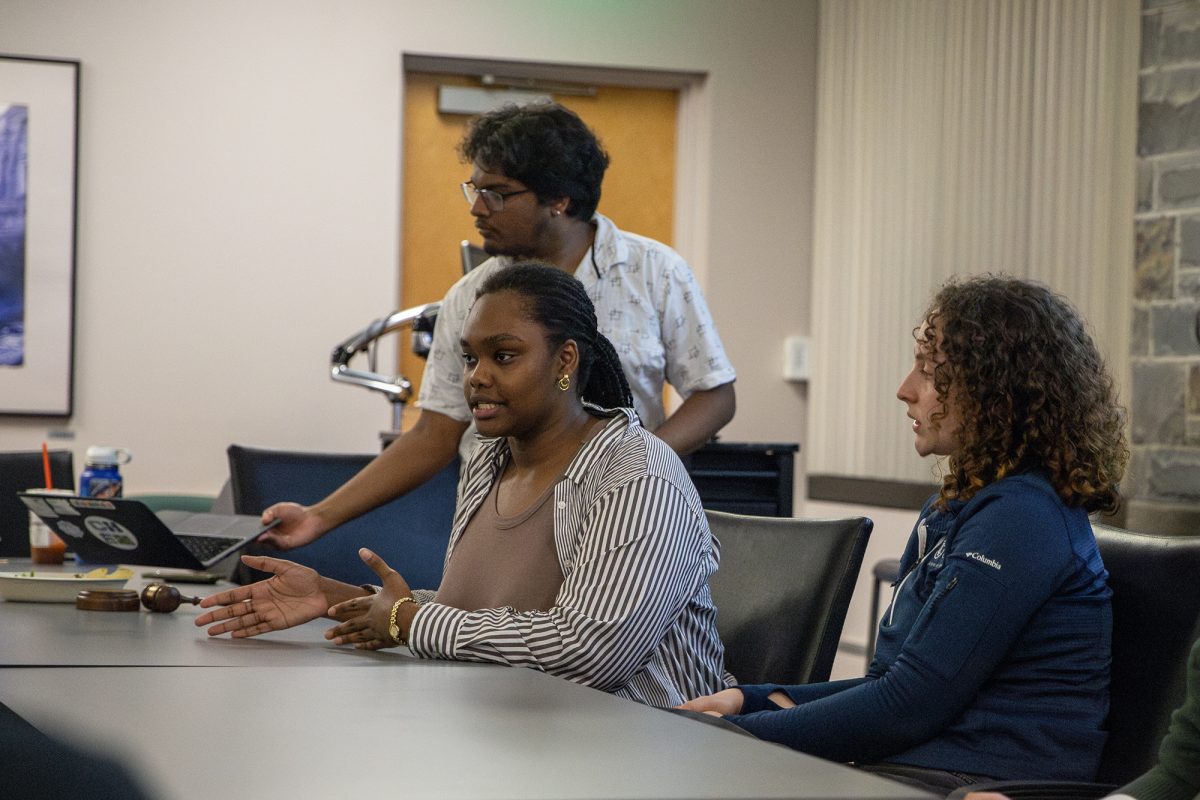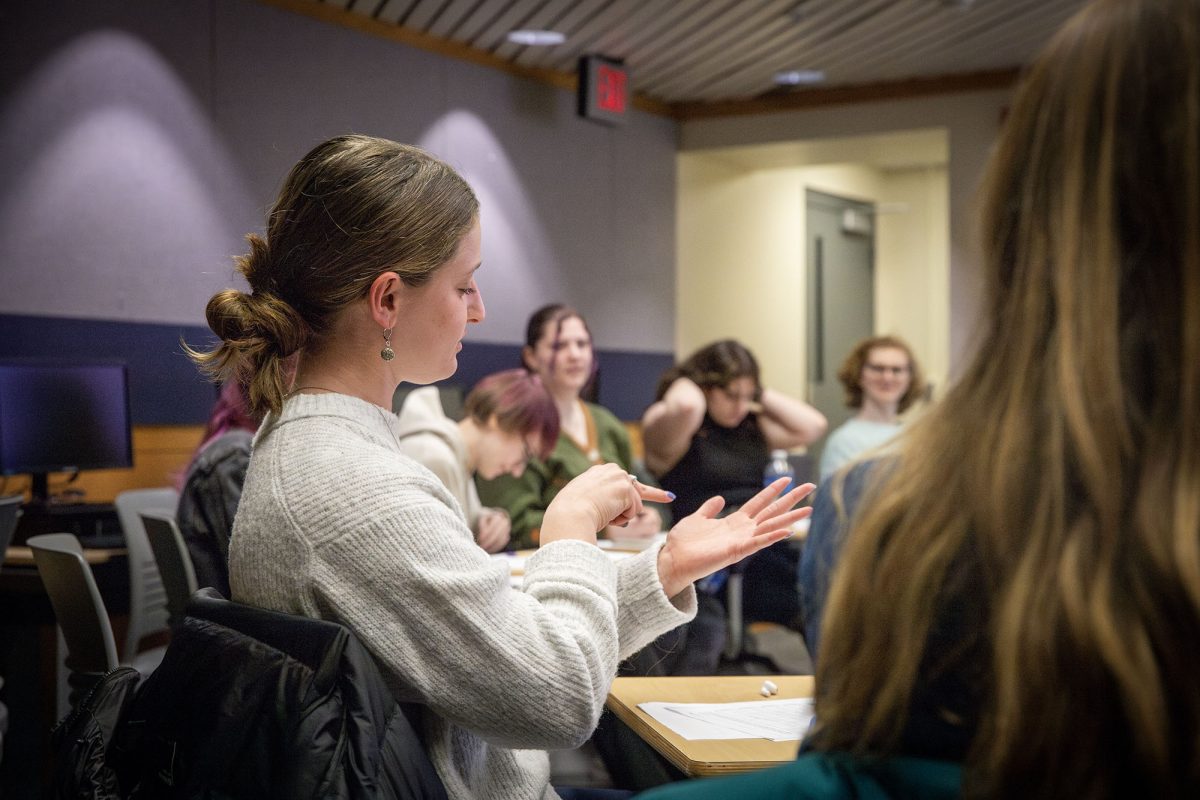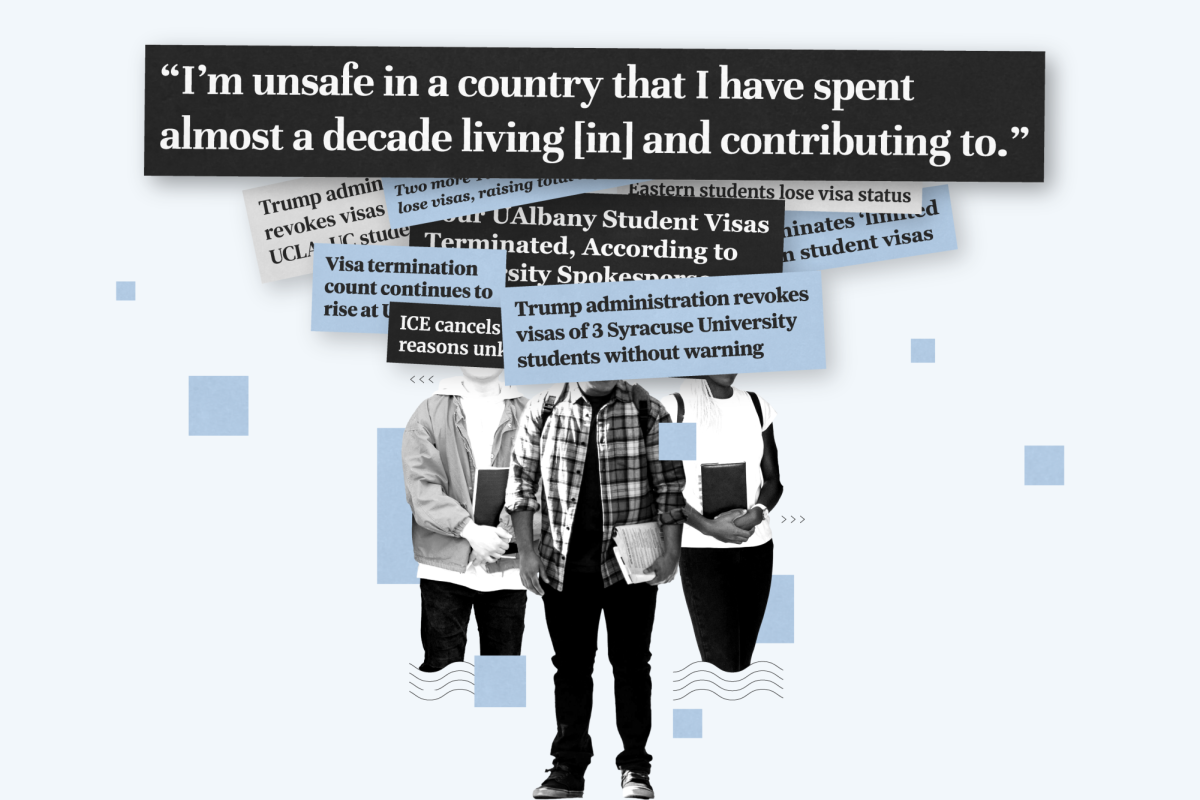Two candidates presented Nov. 27 and Nov. 29 for the position of director for Staff Equity, Inclusion, and Belonging at Ithaca College, during the last round of Fall 2023 open sessions.
Omar Stoute ’19 spoke on Nov. 27. Stoute was previously the Title IX Deputy Coordinator at Ithaca College and is currently the Equity and Title IX Investigator at Cornell University. De-Dee Loftin-Davis — founder of Loftin-Davis Consulting, a racial equity consulting firm — closed out the second of the two open sessions. Stoute asked to not be quoted during his presentation.
The sessions come after the EIB Center’s official launch in July. The first open session was in August. Leon Holden was the first candidate for the director of Staff Equity, Inclusion, and Belonging position who visited campus. The college has not shared updates on Holden’s candidacy since.
The center currently plans to operate as a three-person leadership team which already includes Luca Maurer, executive director for student equity, inclusion and belonging and Belisa Gonzalez, dean of faculty equity, inclusion and belonging. Since the center was founded, there has not been a director for staff equity, inclusion and belonging.
The sessions were open to the campus community, but faculty members were especially encouraged to attend to give feedback on the presentations. Faculty were given forms that allowed them to describe the candidates’ education and experience necessary for the position, each candidate’s strengths, opportunities for growth and whether each faculty member would recommend the candidates or not.
Loftin-Davis’ main point throughout the presentation was the importance for staff to have a separate EIB space at the college and in other workplaces. She said that when people actively make marginalized staff feel seen, everyone on the team feels more valued.
“Equity helps people to go from invisible to invaluable because they know this,” Loftin-Davis said. “But it shows those who don’t know that about them that they’re not just invisible, they’re invaluable.”
Loftin-Davis illustrated in her presentation that spaces like the Center for Equity, Inclusion, and Belonging are necessary for an area like Ithaca. In her presentation, she said Ithaca has a demographic of 68% white, 8.4% Hispanic/Latino, 16.1% Asian, 5.7% African American, 3.9% White (Hispanic) and Indigenous 0.1% according to the 2022 U.S. Census.
Michelle Hammond, senior director of human resources operations, said these presentations for the campus community illustrate the importance of the position at the college.
“I think it just places emphasis on the importance of the position and that the institution is valuing what people think about the candidate that we’re going to hire for the position,” Hammond said.
Loftin-Davis outlined her plan of action in three phases: policy evaluation, acknowledgment of values addressed in existing policies and communicative messaging to staff. Phase one of her plan would evaluate policy to ensure vulnerable staff voices are heard. Phase two would review statistical input and follow up on what values truly matter to staff. Finally, phase three would emphasize messaging to staff that being clear, concise and consistent is key.
Loftin-Davis’ presentation highlighted the differences in obstacles between each workplace she has consulted for and said there is no single approach that addresses EIB matters.
“There are over 450 years of well-documented systemic workplace oppression, barriers like racism, bias, discrimination, gaslighting everyday and inequities,” Loftin-Davis said. “No matter where you are and what state or country you’re in, one-size approaches do not see the whole employee, the whole staff and the key understanding of this work is a dedicated process, not a destination.”
Loftin-Davis pointed out that successful workplaces that strive to be more diverse, equitable and inclusive acknowledge intersectionality. She said this plays an important role in staff recruitment and retention.
“That’s the work, let people be human when you tell people and employees to bring their whole selves, but you only accept half of them,” Loftin-Davis said. “You wonder why people are leaving. I’m not saying Ithaca, but why people are leaving businesses and my generation are saying, ‘I don’t want to stay at this job because y’all don’t see all of me.’”
When asked about effective DEIB training, Loftin-Davis said the most crucial aspects are to invest in training and to get an idea of the established values of staff.
“The most effective training I’ve seen is when the company invests in the trainers, whether they’re in-house or external,” Loftin-Davis said. “And then … when the trainer gets there, [the trainer does] a pulse check with the staff to see what they should value and then not having the staff assimilate, but showing the staff that the company organization education is investing. But the data we have through the reassessment is investing. Now the power has shifted from employer to employee.”
News editor Lorien Tyne contributed reporting


